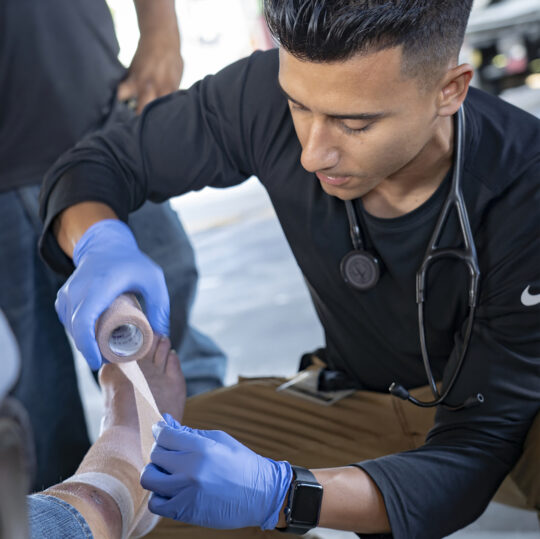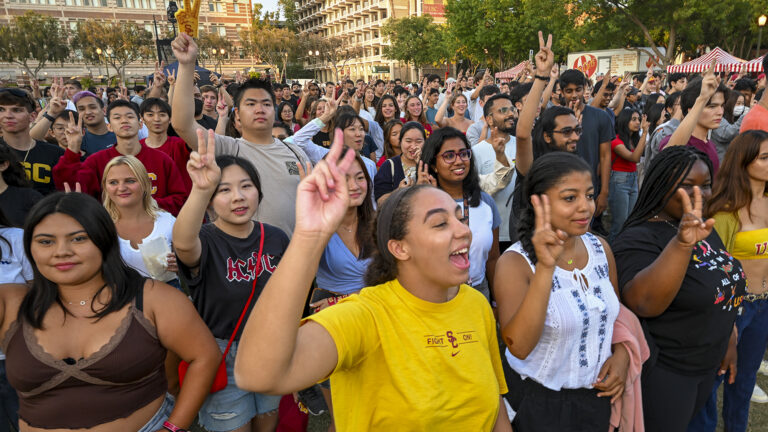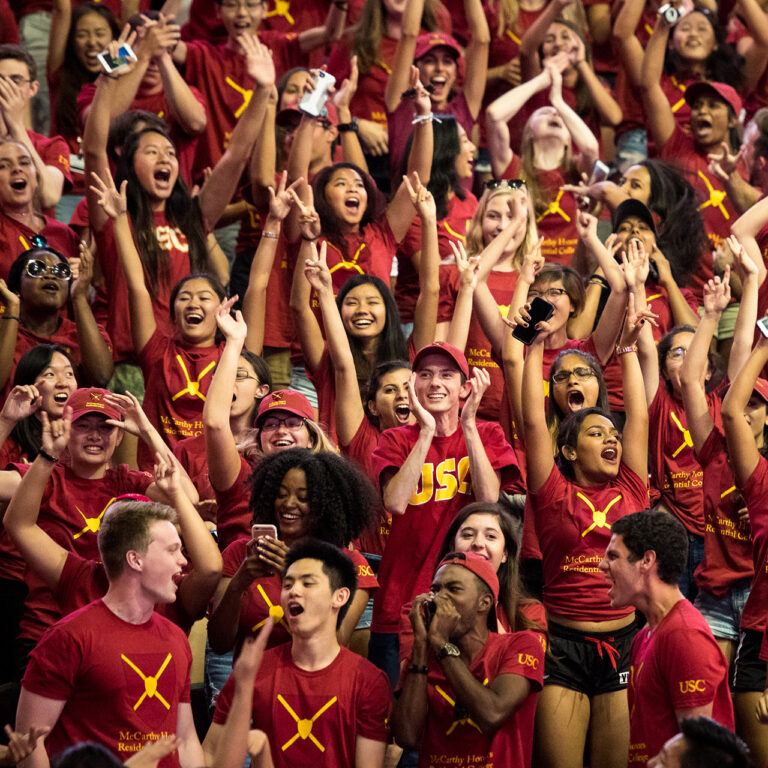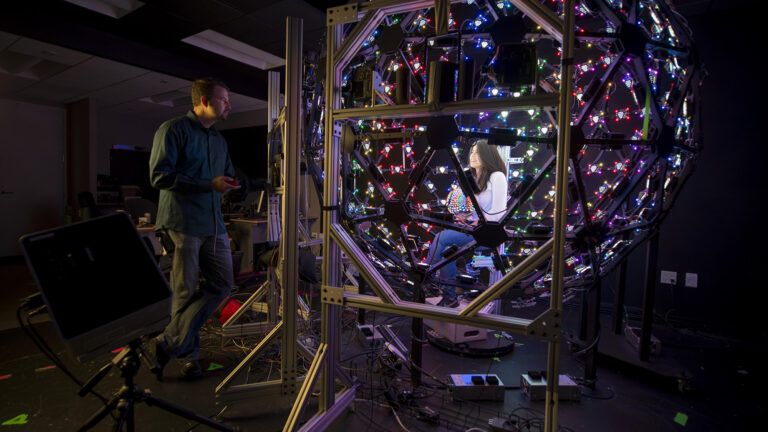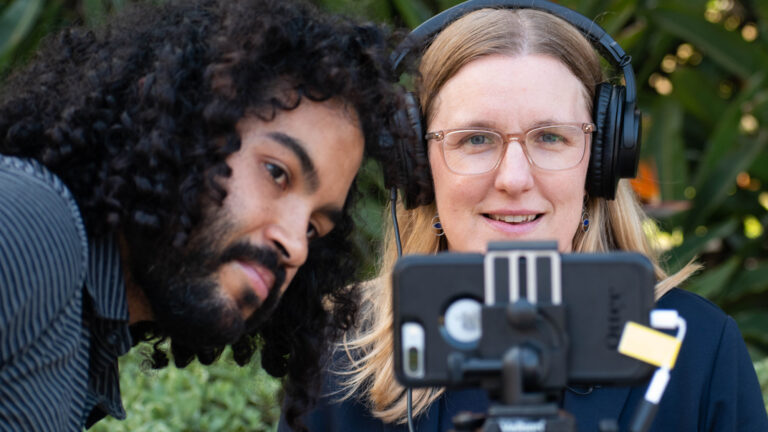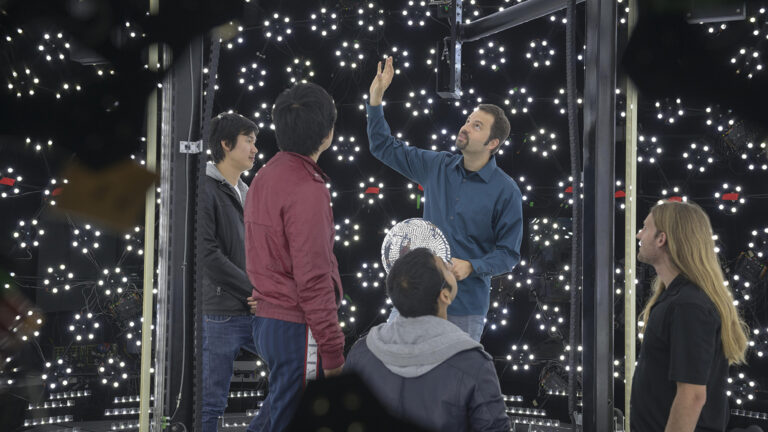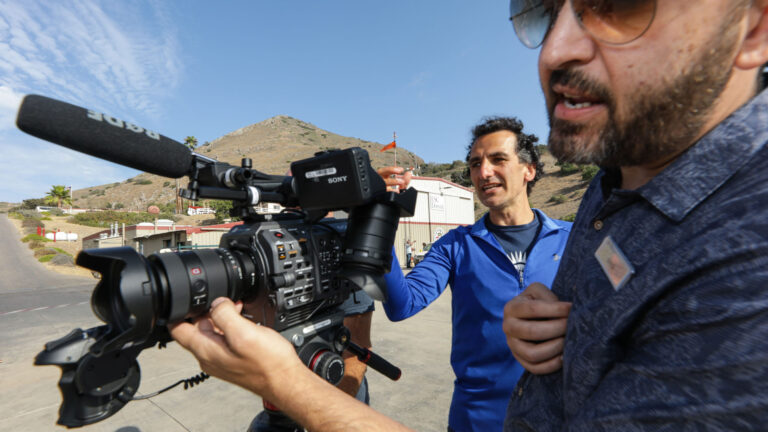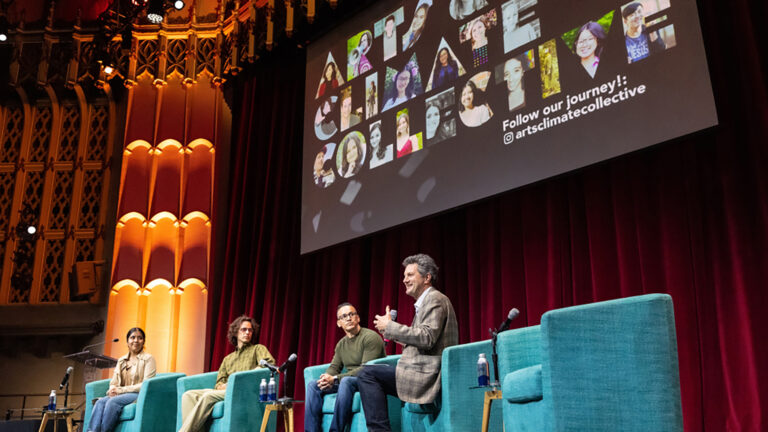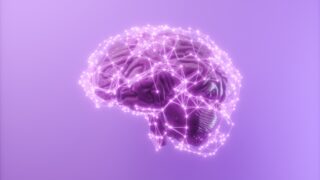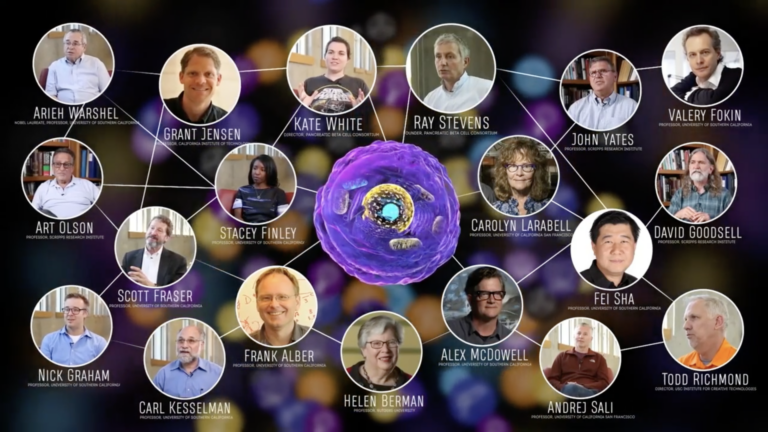We Are Connectors
We spark progress and create new possibilities by connecting organizations, foundations, disciplines and individuals to address the most crucial issues of our time. By investing in interdisciplinary research and convergent approaches that span our many schools, we attract world-class faculty, postdocs, clinical fellows and residents, volunteers, graduate and professional students, and other Trojans who join forces to solve humankind’s biggest challenges.
Connecting Across Disciplines
USC is leading new thinking and dialogue around global health issues, emerging technologies, the latest social science data and more to solve some of the most pressing issues facing humanity.
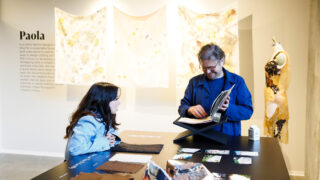
Connections with the Wider World
USC knows it takes a village. Partnerships with corporate, local and government groups sparks new ways of addressing needs unique to today’s interconnected world.
Creating Vital Links
Take a peek at how the Trojan community brings together a multitude of disciplines, groups and ideas for the greater good.
USC launches $12 million Institute on Ethics & Trust in Computing
The institute, supported by funds from the Lord Foundation of California, is the next step in the university’s effort to enhance research and education under the Frontiers of Computing “moonshot.”
Fostering conditions for kindness with Mindful USC
STORY AND VIDEO: Mindful USC offers mindfulness-related programming and events designed to foster connection and compassion among Trojans.
Collaboration between USC engineers, doctors provides hope for patients with severe depression, mood disorders
USC Viterbi’s Maryam Shanechi works with researchers from the Keck School of Medicine of USC in the hopes of creating game-changing new therapies.
Working together to advance use of nature-based solutions that fight climate change
At the USC Capital Campus, the USC Dornsife Public Exchange and the White House Office of Science and Technology Policy explore how nature can be used to fight floods, heatwaves, fires and more.
USC launches interdisciplinary fashion minor
The minor, based at the USC Roski School of Art and Design, takes advantage of resources across a multitude of USC schools.
Converging Knowledge
USC is a hub for funneling knowledge into new ways of looking at the world, not to mention helping people.
At USC’s Pancreatic Beta Cell Consortium, experts from across the country are integrating knowledge from many expertises — computation biology, X-ray crystallography, electron topography and more — to build a groundbreaking atomic resolution model of the pancreatic beta cell. The results could improve the lives of the more than 100 million people living with diabetes.
Making the Link
USC movers and shakers have no fear connecting people and places, no matter the chasm. We know it takes a certain tenacity to forge new connections — and to push those links forward into action that betters the lives of others.
Keeping Our Communities Safe
During late 2020 as the pandemic barreled on, the USC Alfred E. Mann School of Pharmacy and Pharmaceutical Sciences partnered with the City of Los Angeles to provide free flu vaccinations at various COVID-19 testing locations across the city.
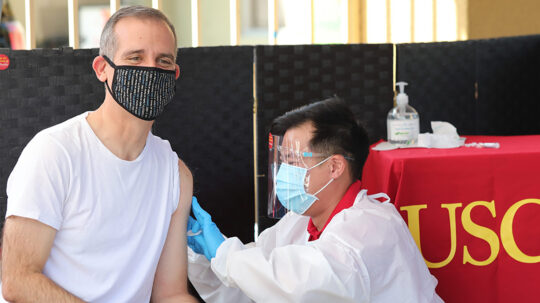
Inclusion Means Everyone
Living your values means taking meaningful action. Social, economic and racial justice embody USC’s core character and a strategic collaboration with Keck Medicine of USC and The TransLatin@ Coalition — the largest trans-led nonprofit in L.A. that advocates for transgender, gender-nonconforming and intersex (TGI) immigrants across the country — is improving comprehensive health care for members of this diverse community.
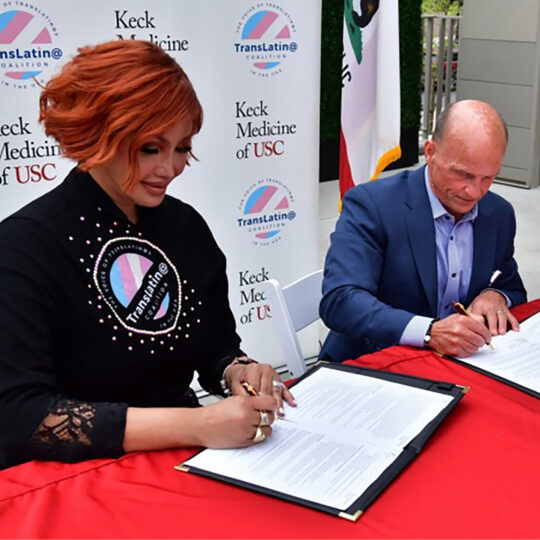
Creative Healing
Thinking outside the box when it comes to helping others is just what we do. USC Comic+Care uses laughter and humor to improve the physical and mental well-being of hospital patients and communities in need. By blending the arts of clowning and improv with the sciences of psychology and medicine, the program aids in the recovery and healing process for people of all ages and backgrounds.
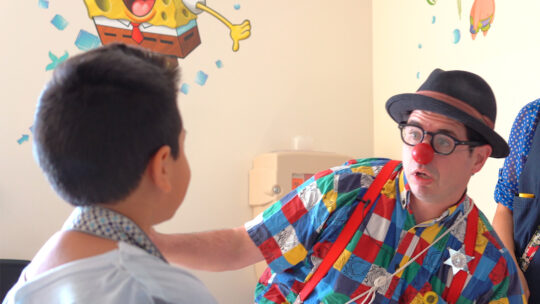
Collaborating for Better Patient Care
Every day, USC researchers use collaboration and cross-disciplinary approaches to advance our understanding of the human body to improve the human condition. Peter Kuhn, co-founder of the interdisciplinary USC Bridge Institute and director of the Convergent Science Institute in Cancer, brings together experts across various fields to shed new light on how cancer spreads through the body, ultimately developing unprecedented ways of personalizing care.
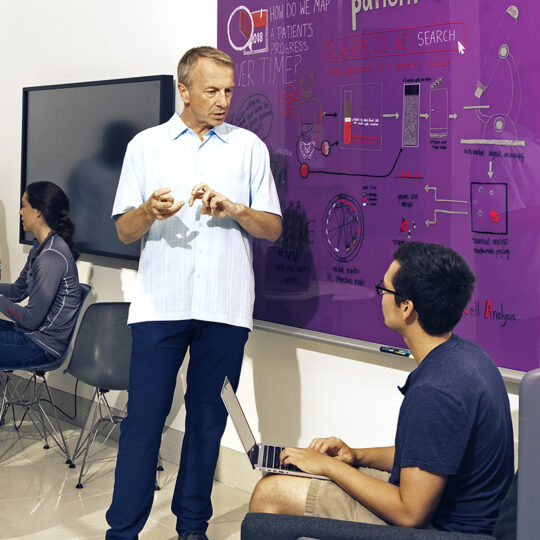
New Ways to Go Global
International engagement doesn’t just happen at the federal level anymore — U.S. states, cities and even companies and organizations have become players in foreign relations. The USC Center on Public Diplomacy’s annual Summit on City Diplomacy convenes government officials, global opinion leaders, scholars and more who advance the latest dialogue on what it means to have a seat on the global stage.
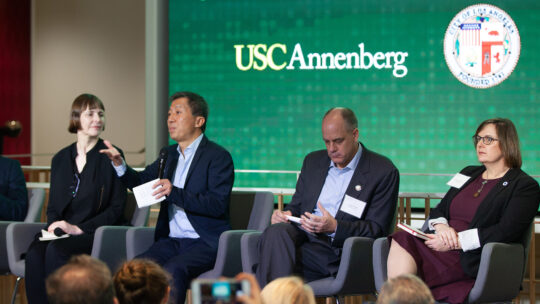
Meeting People Where They’re At
For L.A.’s residents experiencing homelessness, USC’s Street Medicine team brings the hospital to the patients. Trojan medical professionals comb the streets, building rapport with patients and providing the in-person medical care they so desperately need.
